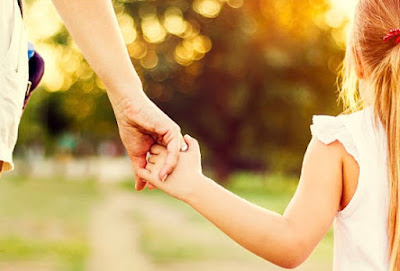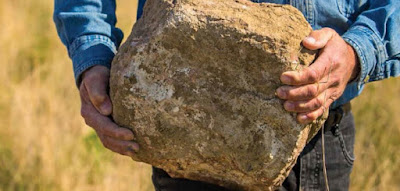Less than six weeks after the scans showed no signs of cancer, the monstrous beast returned with a vengeance, raging through my body. It has infiltrated the bones in my leg, has taken over the lymph nodes in my neck, has spread to my stomach, and has extended from the back of my shoulder all the way down my rib cage. The pain is excruciating. Food doesn’t stay down. I now sleep most of the day. From zero to completely invasive in less than 6 weeks.
When I was first diagnoses with stage 4 metastatic cancer a little over one year ago, I knew it was terminal, but I held on to hope that I could fight it. At least for a little while. And because I had no idea how long the journey would take, I haven’t shared too many details with my two youngest children. I didn’t want to scare them. I told them that Mama has cancer, but all that has meant to them up until now is that I went to a lot of doctors’ appointments, that I had lots of medicine, that I took long naps, that many of our friends helped us with meals and babysitting, and that I cried every day.
And to them, cancer meant that in just a few short months, my appearance completely changed. Watching me become bald (due to the chemo), watching me lose so much weight that I look skeletal, and watching me lose the use of my arm and hand and leg (due to nerve damage caused by the tumors) has been especially frightening for them. Every day my heart rips into pieces when I hear them pray, Dear God, please help Mama’s cancer to go away.
A few days ago, when I found my 11-year old son sobbing, something he never ever does, I held him close and asked him what was wrong. Through his tears, he tried to catch his breath long enough to look at me and say, I just want you to be healthy again! I knew then that it was time to tell them the truth. My hospice team has predicted that I most likely have just a few weeks left, and now my kids need to know that as well. I need to prepare them for what will be happening to me. For what will be happening to them. It was time for them to understand what Mama has cancer really means.
I said as gently and tenderly as I could, Honey, my cancer isn’t going to go away. I’m not going to be healthy again. I explained that I am going to die. And that means I am going to leave and not be able to come back again. My 5-year old daughter, who had joined our conversation by then, asked if we could maybe FaceTime, and through my own sobbing, I told her I’m so sorry, Sweetheart, but no, we can’t do that. After I leave, you won’t see me again.
I tried my best to pull myself together long enough to let them know that God loves me, and He promises that if I believe that Jesus died on the cross to forgive my sins, I can go to heaven and live with Him. And heaven is such a really great place to live! There is no cancer there. There is no pain, no medicine, no doctor’s appointments. And there is also no tears. Right now I am so incredibly and deeply sad that I will be leaving my precious children – the older ones as well as the younger ones - that I can hardly bear it! I don’t understand how this is even possible, but when I am in heaven, I will no longer be sad. I won’t need tissues anymore.
And when I go to heaven, I will get to see Jesus, the One who is my very best friend! The One who has never stopped loving me. The One who has been with me during the darkest of nights and has, despite my doubts and faltering faith, never given up on me. On that day when I go to heaven, He is going to put His hands on my face and touch what I imagine will once again be my long brown hair. He will look into my eyes and say to me, Hello Beautiful!
I assured my kids, as best as I could, that not only would I be ok, but that they would be ok too. That they have an extraordinary dad, one who loves them so, so much, who will still be here to take good care of them. That they have older siblings, extended relatives, and close family friends who will make sure they have everything they need. They may be sad, but they can know with certainty that they will be safe.
There have been a lot of changes in our home and in our family over the past few years. Foster children have come and gone, older siblings have moved out on their own, and mama has cancer that is quickly causing her to become a very different mama than the one they’ve always known. One who is always in pain, who is frequently sleeping, who can no longer brush hair into a ponytail or pour a glass of apple juice. But through it all, through all the changes they have witnessed and experienced, I want them to know that the one thing that will never ever change is how much I love them. Even when I am gone and they can’t see me anymore, I will never ever stop loving them.
That was a really hard day. A really tough conversation to have with two innocent children who are just trying to understand what is happening to their mom. But I want them to know the truth. I want them to know that it’s ok to talk about these things, to ask questions, to need more explanations, to try and find the words to describe our feelings.
We probably used up an entire box of tissues that day, but even that is a good thing. Emotions aren’t bad, and whatever we are feeling – sad, confused, scared, maybe even angry – its ok to feel those things. No matter what we are feeling, God is right here with us. The same God who is with me now, who is comforting me and loving me through this physical pain and emotional grief, is the very same God who will be with them, who will comfort them and love them through their sadness and their fears in the weeks and months to come.
Since then, in the few days since talking about what it means for mama to have cancer, our family’s prayers have changed. We can continue to pray that God would help my cancer go away, and He could certainly choose to do that. He is, after all, a God of miracles. But if that day comes in the next few weeks when my body can no longer fight, on that day when I go to heaven, I don’t want my kids to be angry at God for not answering their prayers. Instead, I want them to seek God in their grief. To experience His strength and peace and comfort as He carries them through.
And so, now our family’s prayers are full of gratitude and confidence. Prayers that my children can continue even after I am gone. We thank Him for His love and His goodness towards us. We are so grateful that He is always with us, that He promises to never leave us. We thank Him for giving us courage when we feel afraid, for shining His light into our hearts when we feel sad. Last night, my 5-year old daughter prayed, Dear God, thank you that Jesus died on the cross so that we can go to heaven. Oh, how it thrilled my heart to hear her articulate that! Instead of Mama’s cancer causing her to turn away from God, it is causing her to draw close to God. It is helping her understand the gospel!
Their mama has cancer, and sometime within the next few weeks, on that day when I go to heaven, their lives will be forever changed. During their season of mourning, during their sadness and confusion and fears, it is my hope and prayer that they experience first-hand these unchanging truths in their hearts and in their lives:
The forever love of their mama.
The protective care of their dad.
The collective support of those we call “our people.”
The powerful presence of a good and loving God.
Mama has cancer. Three little words that my children should never have to hear.
God is good. Three little words that I hope they will remember and believe and declare for the rest of their lives.
Know that the Lord, He is God!
It is He who made us, and we are His;
It is He who made us, and we are His;
Give thanks to Him;
For the Lord is good;
His steadfast love endures forever,
and His faithfulness to all generations.
His steadfast love endures forever,
and His faithfulness to all generations.
- from Psalm 100













